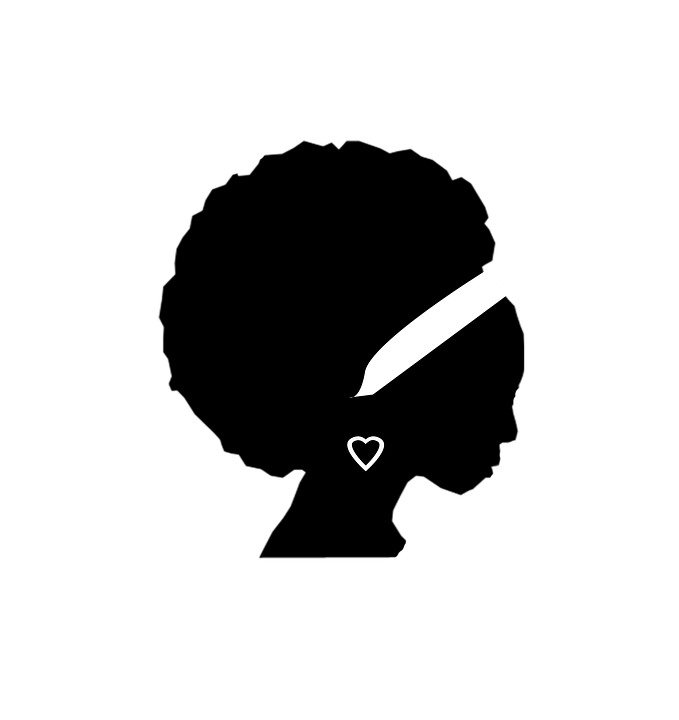Many people often wonder why hair is such a big deal to black women. Well, because the relationship between black hair and beauty standards is deeply rooted in slavery, it makes sense for it to be so important. Black women have been made to view their features, such as their natural hair, as not living up to the standards of white beauty, so some see themselves as lesser than their white counterparts. This relationship has done a lot of seemingly irreparable harm to black women, and a lot is being done so black women can embrace themselves and the decisions they make about their hair.
During slavery, black women struggled to take good care of their hair. The products and tools necessary to achieve the styles that there were in Africa weren’t available in America. Also, there was no time for black women to recreate their intricate hairstyles, as they were living in bondage. In attempts to further depreciate the value of black hair, European-born Americans would refer to black hair as wool, essentially dehumanizing yet another aspect of blackness. This effectively began the process of erasing the history behind and culture within the styling and wear of natural black hair.
Throughout time, white normative beauty standards have changed drastically, but have always remained the ideal for those of various cultures. Even within the culture itself, white beauty standards – beautiful, blonde, thin, tall, virginal and upper-class – are difficult to live up to. Many white women even struggle to fit into the mold that society expects them to fill, so it’s easy to see how women of any other race would have trouble accepting their own beauty as anything other than subpar. This mindset essentially destroyed the self-esteem of non-white women just because they were not born white.
It is evident that pressures to look a certain way are too influential when you consider the fact that numerous black women have, at some point in their lives, chemically altered their natural hair. Black women everywhere have experience with hair relaxers, and have used them throughout their lives without really thinking about why they were doing so. This hits home for me. I used to ask – no, beg – for a relaxer when my hair started to stray from that silky smooth pattern, but I never really thought about why I wanted one so badly. The recognized standard of hair beauty — straight texture — was ingrained into my mind and minds of young black girls everywhere. We subconsciously yearn for something unattainable to us naturally.
All I really saw on television or in magazines growing up was white faces and white hair and how to amplify the beauty in such features, so I felt the need to attain those qualities in order to follow those instructions. The lack of representation of black bodies and black beauty – non-stereotypically – in the media takes away the opportunity for young black girls to see their features as beautiful. If we do not see ourselves reflected in something so pervasive in society as media, then it is difficult for a positive attitude towards black beauty to be achieved.
The Natural Hair Movement is described, most succinctly, as the many black women who have stopped using chemical relaxers to permanently alter the texture of their hair. This movement has created a sense of empowerment and sisterhood amongst the women who have chosen to return natural. The bonhomie associated with recognizing another woman who has subverted the beauty standard set for hair is encouraging and essential to the progress of the movement.
No woman should feel obligated to conform to anyone’s beauty standards but her own, so it’s important to remove the stigmas behind both natural and relaxed hairstyles in black culture. It is one thing for people from other backgrounds to talk negatively about black hair, but it is an entirely different story when that occurs within the black community. Recently, Gabrielle Douglas, an Olympic gold medalist, faced adversity because of how she wears her hair when she performs gymnastics. People say her hair is unkempt and nappy and she should know to “do something about it” in public. The worst part is that the majority of these comments came from other black women. This blatant self-hatred is a manifestation of the ideals ingrained in black people about beauty. These women do not see the beauty or worth in what Gabby is doing as far as representation goes, and choose to see only what’s on the surface.
I want to make something very clear. Gabby Douglas, or any other black woman for that matter, is NOT obligated to wear her hair a certain way to please anyone else but herself. To imply otherwise is to deny one their autonomy and to distill the essence of who they are and what they do to make a difference in the world.
How one black woman chooses to style or wear her hair has no direct effect on that of another black woman. Black hair means something different to each individual black woman, and it is imperative that each black woman can define what her hair means to her for herself. Beauty really is in the eye of the beholder, and it is up to black women everywhere to shut down the idea that their own personal, individual, and unique brand of beauty is not enough. Because it most certainly is.
Hope Hynson is a sophomore psychology major and a member of UMD’s chapter of the NAACP. She can be reached athopehynson@gmail.com.



